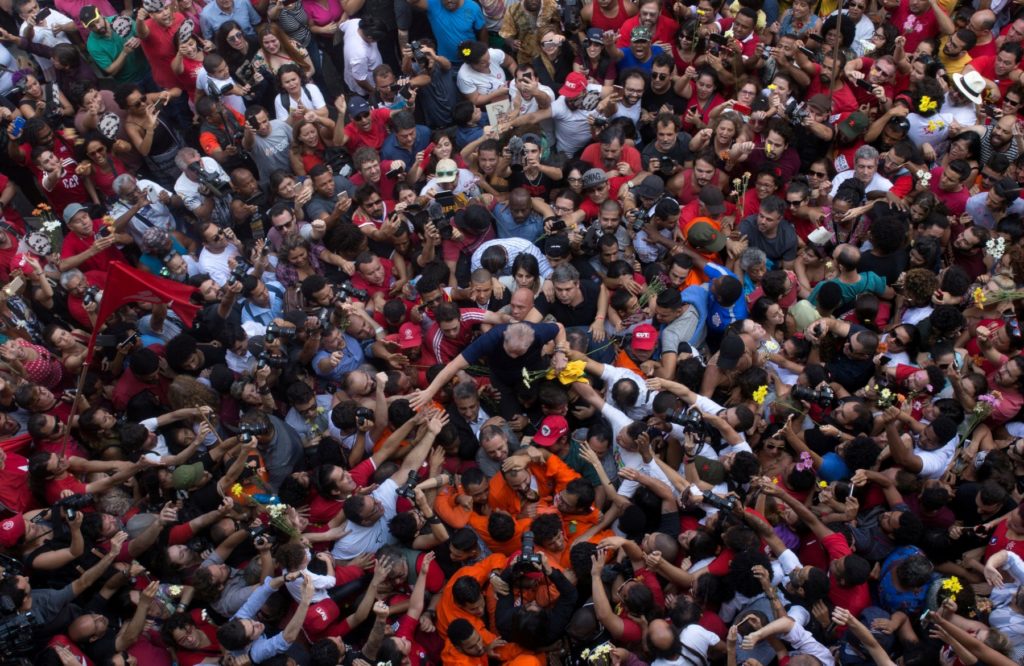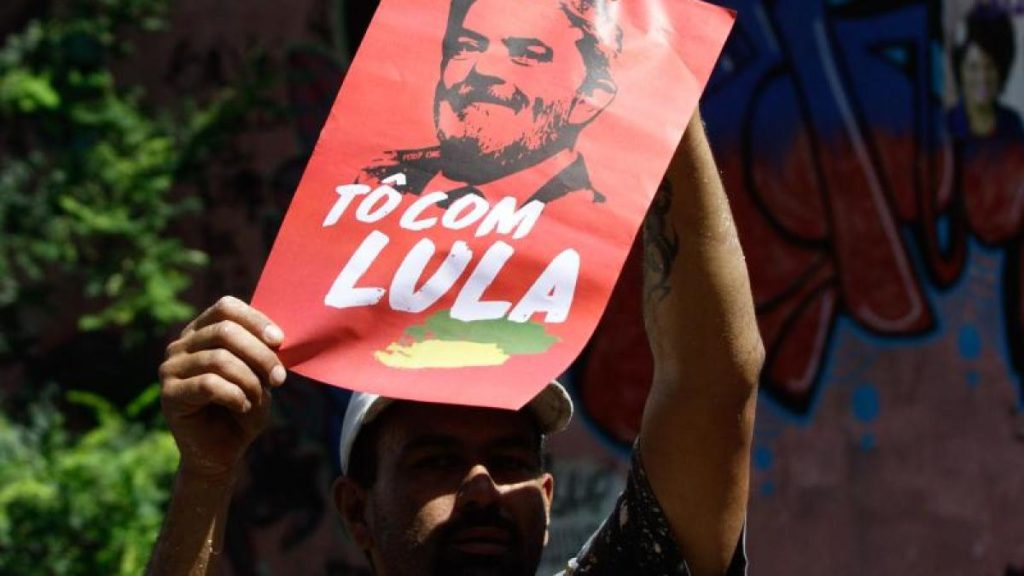
On April 7, 2018 in Brazil Luiz Inacio “Lula” da Silva was arrested and taken to prison in Curitiba to begin a twelve-year sentence. He was Brazil’s president from October 2002 to January 2011. He was so popular that when he left office in 2011, he had a 90% approval rate.
Soon afterwards, he was charged with corruption while in office. He denied the charge. He was however convicted of the charge, a conviction that was sustained by an Appeals Court. He is still appealing his conviction to the Supreme Court.
However, under Brazilian law, he can be imprisoned once an Appeals Court has affirmed his sentence without waiting for the judgment of the Supreme Court. He asked nonetheless for a habeas corpus, which would have kept him out of prison until he had exhausted all possible appeals. The demand was rejected by a vote of 6-5. Thereupon, the judge who charged him initially and who was particularly hostile to Lula, Sergio Moro, moved swiftly to put Lula behind bars.
What was the reason for this harsh treatment, which was not applied to many others facing much more serious charges? To understand that, we must review recent Brazilian history and Lula’s role.
Lula was a trade-union leader who founded a workers’ party, the Partido dos Trabalhadores (PT). It was the party of the underclass and one that stood for fundamental change both in Brazil and in Latin America as a whole.
Lula ran for president in several successive elections. He was probably cheated out of his election at least once. He finally won in 2002.
The Brazilian electoral system leads to a profusion of parties, none of which has ever been able to obtain a plurality of more than twenty-odd percent of seats in the legislature, much less a majority. In order to govern therefore, the party with a plurality has to make deals with other parties of quite different ideological leanings.
Despite this limitation, Lula was able to form a government and obtain legislative support for significant transfers of resources to Brazil’s poorest third of the population, which explains his popularity. He was also able to lead Latin American states to forge new interstate structures that did not include the United States and Canada.
The internal redistributions and the geopolitical realignments displeased greatly both the United States and Brazil’s right-wing forces. One thing that made it difficult for them to counter Lula was the fact that the state of the world-economy in the first decade of the twenty-first century was very favorable to the so-called newly-emerging economies, also known as the BRICS (B for Brazil). However, the winds of the world-economy turned, and suddenly revenue for the Brazilian state (and of course many other states) became scarcer.
The right found a renewed opening in the financial squeeze that ensued. They blamed economic difficulties on corruption and fostered a judicial drive called lava jato (car wash), which evoked the issue of laundering money, something that was indeed widespread.
In 2011, Lula was succeeded as president by Dilma Rousseff, a more conservative leader in the PT. When some PT cabinet members were convicted of corruption, the right launched a move to impeach Dilma. She was not charged with corruption herself but charged with inadequate supervision of her subordinates in leadership positions.
This was a thin excuse. As Boaventura de Sousa Santos put it, the one impeccably honest politician in Brazil was being successfully impeached for corruption by votes of all the most corrupt officials in the land.

The reason the right engaged in this farce was that the Vice-President who would succeed Dilma after her impeachment was Michel Temer, who had been placed on Dilma’s ticket as part of an electoral coalition. Temer assumed office immediately and rejected the idea of early elections which he would almost surely have lost. One of the first things he did instead was to arrange that the substantial charges against him for corruption be dropped.
The motive for impeaching Dilma seems clear. It was to prevent Lula from running in the next election for president. The consensus view was that Lula would win again. The only way to stop him was to charge him with corruption. And the charge could only be sustained if Dilma was impeached. The strength of the PT was closely linked to Lula’s charisma. Any other candidate would probably be unable to command support anywhere near the level that Lula could obtain.
Once Lula was threatened with immediate imprisonment, Brazil’s two major popular forces expressed their strong opposition to what they asserted was a political coup d’état. One was the Central Única dos Trabalhadores (CUT), which Lula had once led, and the Movimento dos Trabalhadores Rurais Sem Terra (MST), Brazil’s largest rural organization.
The leader of the MST, João Pedro Stedile, explained the reasons for their support. The MST had had many disagreements with Lula and had been disappointed with his refusal to break with many neoliberal policies. But those who were trying to prevent Lula from running were truly antagonistic to all the positive things Lula had achieved and would institute severe retrogressive measures.
The MST and CUT organized significant mobilizations against his imprisonment. But, faced with the threat of the armed forces to intervene (and possibly restore a military regime again), Lula decided to present himself for arrest. He has now been imprisoned.
The question today is whether this right-wing coup can succeed. This no longer depends on Lula personally. History may absolve him but the current struggle in Brazil and in Latin America as a whole depends on political organization at the base.
The Temer government will pursue neoliberal policies fiercely. And Temer will no doubt present himself as a candidate for election. Temer knows no shame nor any limits. He risks going too far too fast.
One of the principal characteristics of the structural crisis of the modern world-system in which we find ourselves is the high volatility of the world-economy. Should it run even further downward than it is at present, there may well be an upsurge of popular sentiment against the regime. If it began to include large parts of the professional strata, an alliance with the underclasses is quite possible.
Even then it will not be easy to change the political realities of Brazil. The army stands ready probably to prevent a left government from coming to power. Nonetheless one should not despair. The army was defeated once before and evicted from power. It could be again.
In short, the outlook for Brazil and for Latin America as a whole is highly uncertain. Brazil, given its size and its history, is a key zone of the middle-run struggle for a progressive outcome of the struggle between the global left and the global right for resolving the structural crisis in their favor.
Brazil merits our collective close attention and our active solidary participation.
Immanuel Wallerstein, Senior Research Scholar at Yale University, is the author of The Decline of American Power: The U.S. in a Chaotic World (New Press).
